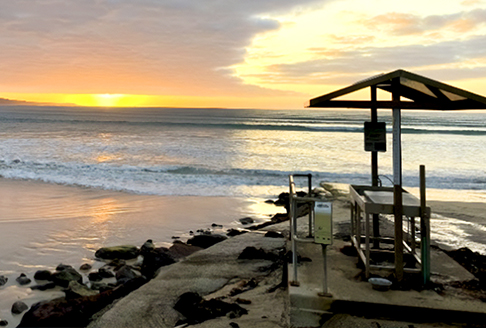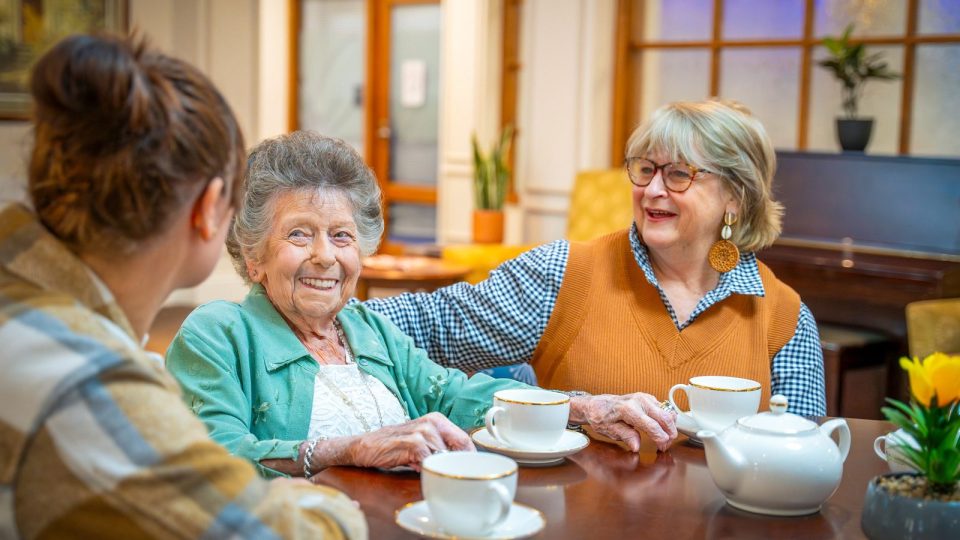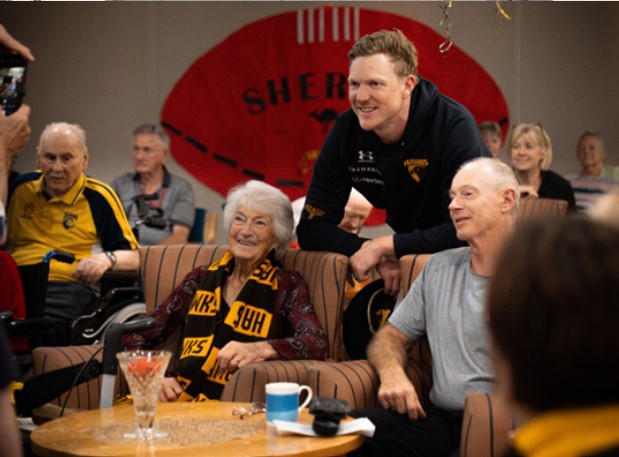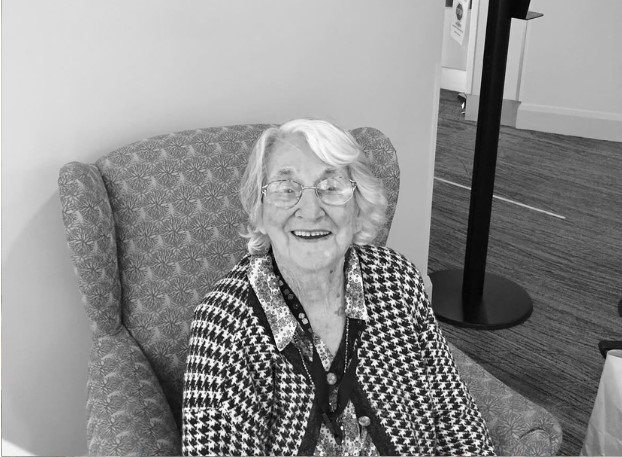Blue Christmas reflection by Acting Head of Spiritual Care, James Lewis
- 13 Dec 2023

In December 2013, our family packed into the car and drove the caravan across the Nullarbor for a long awaited Long Service Leave holiday. We planned to meet my sister and her family who live in Perth. Mum and Dad and my brother would fly over and join us for a wonderful Christmas gathering. But in July, Mum was diagnosed with a brain tumour. She died two months later. So the LSL changed from an exciting new adventure to a road trip with grief. Christmas was going to be different.
In Perth, we gathered with hearts full of love and eyes full of tears. Our dear Mum who had always been our dynamic social engineer was absent. But she was still powering us together! It was so sad, and yet so important to share together. We honoured our love for her in her absence, and in turn she made her ‘presence’ amongst us.
With Christmas upon us it is good to acknowledge that this can be a very difficult time for some people. Not everyone looks forward to Christmas: it is a season loaded with all kinds of baggage. It arrives with dreams of holiday excitement, end-of-year relief, family gatherings and parties. For many people it reminds us of those who we most dearly miss; a unique grief and sorrow. We may wish our Mum was still alive to share the time, or a child, or a partner. Equally we may wish to avoid having to spend time with difficult family members or carry the burden of expectations to spend money we don’t have on gifts. Christmas, tragically, is the worst time for domestic violence, homelessness and alcohol abuse.
In the northern hemisphere there is a tradition called ‘Blue Christmas’, held on 21 December, their Winter Solstice and longest night. Christian churches hold a service that makes space to honour people who have lost loved ones. The service includes expressions of grief and pain, as well as the opportunity to focus on the promise of hope found in Christ.
Acknowledging fragility in this season is important for addressing feelings of shame and isolation. It is helpful to talk about the tension between our hopes and ideals for Christmas – and the reality. A ‘Blue Christmas’ is one way of acknowledging our fragility in the face of difficult times. Sharing fragility builds a sense of common humanity – the gift of community, understanding and hope. Sometimes the heaviest burdens we carry are not imposed by others but by our own unrealistic expectations of ourselves.
This Christmas I hope you connect with trustworthy people who are safe, who nourish your life and soul with love, and who remind you of the beauty that emerges in vulnerability. May you have the courage to name what you need to care for yourself and your loved ones.
May you find solace and strength in places of beauty, in rituals and spiritual practices that bless your soul and spirit. May you find hope, peace and glimpses of goodness in the aspects of Christmas that feel safe and life-giving.
I believe God’s gift in Christmas is the promise of ‘Emmanuel’: God with us in our everyday journey. May there be a sense of the sacredness of companionship in your journey.
James Lewis
Acting Head of Spiritual Care.
Community news
-

How to talk to a loved one about moving into aged care
One of the most challenging conversations we may have with our loved one is about whether it’s time to consider moving into residential aged care. Whether it’s a parent, grandparent, or partner, the topic can stir feelings of resistance and guilt. But when approached with empathy, patience and deep respect for the individual’s wishes, this conversation can become a meaningful step toward greater safety, comfort and connection.
- 18 Feb 2026
-

Hawthorn stars bring footy fun to Abbey Gardens
There was no mistaking the colours at Abbey Gardens Residential Aged Care Community in Warragul this week – brown and gold as far as the eye could see. Residents and staff donned their finest Hawthorn Football Club gear as players and support staff arrived for a visit, chatting with residents, signing autographs and bringing plenty of footy fun.
- 18 Feb 2026
-

Dressmaker, traveller, Bulldogs fan and volunteer – Thelma turns 100!
Thelma Powell, beloved resident and former volunteer at Westhaven, turned 100 on 9th February 2026 with balloons, party hats, and cake! Surrounded by her family, care team, the local MP, and Mayor, as well as a representative from her beloved footy team, the Bulldogs, it was a day to remember.
- 13 Feb 2026
